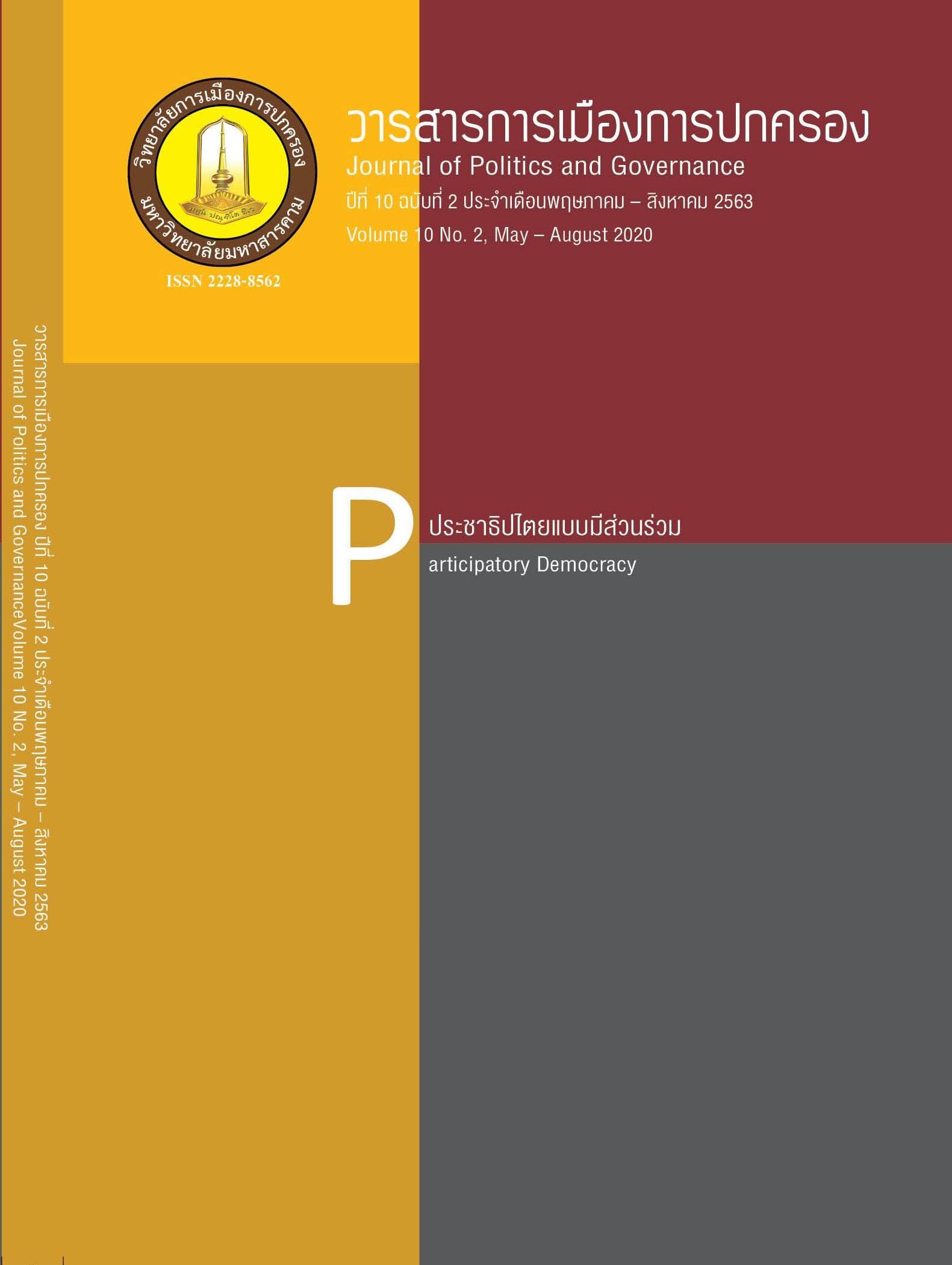Language in Thai Constitutions : The Comparative Study of 1997 and 2017 Thai Constitutions
Main Article Content
Abstract
In this research, comparisons are made between the 1997 and 2017 Constitution of Thailand. It focuses on language in the context of both Constitutions. In this study, documentary and interviewing scholars involving directly in the process of drafting the Constitution were distinguished. The conclusion of the research show that the 1997 Constitution put an emphasis on the promotion and protection of rights and liberties of the people–allowing them to participate in administration and inspection the politicians, and explicitly involving in improving the political structure for more stability and effectiveness. The 2017 Constitution tended to emphasize on the system in order to organize and reestablish the strength of the country by setting the structure of duty and power of independent organizations and proper relation with the legislature. It allowed the court and independent organizations to efficiently, honestly, and fairly monitor and control the use of power, but also properly in national defense and helped solve the political crisis of our country. In terms of language the committee of 2017 try to use simple words to make it clear and understandable so that the rules drafted in the constitution are alive and able to enforce on all people.
Article Details
References
ไชยรัตน์ เจริญสินโอฬาร. (2556). ภาษากับการเมือง/ความเป็นการเมือง. พิมพ์ครั้งที่ 2. กรุงเทพมหานคร : วิภาษา.
นภดล เฮงเจริญ. (2550). ภาษากฎหมาย. เผยแพร่ครั้งแรกใน Public Law Net, 16 ธันวาคม 2545 เข้าถึงได้จาก OK Nation, Nation TV.
รัฐธรรมนูญแห่งราชอาณาจักรไทย พุทธศักราช 2540.
รัฐธรรมนูญแห่งราชอาณาจักรไทย พุทธศักราช 2560.
อุดม รัฐอมฤต นพนิธิ สุริยะ และบรรเจิด สิงคะเนติ. (2544). การอ้างศักดิ์ศรีความเป็นมนุษย์หรือใช้สิทธิและเสรีภาพของบุคคลตามมาตรา 28 ของรัฐธรรมนูญแห่งราชอาณาจักรไทย พุทธศักราช 2540. กรุงเทพมหานคร : นานาสิ่งพิมพ์.
สัมภาษณ์
เกริกเกียรติ พิพัฒน์เสรีธรรม. สัมภาษณ์, 31 ธันวาคม 2560.
เขียน ธีระวิทย์. สัมภาษณ์, 30 ธันวาคม 2560.
ชาติชาย ณ เชียงใหม่. สัมภาษณ์, 12 กุมภาพันธ์ 2561.
สุจิต บุญบงการ. สัมภาษณ์, 5 กุมภาพันธ์ 2561.
สุวิมล ภูมิสิงหราช. สัมภาษณ์, 18 กุมภาพันธ์ 2561.


